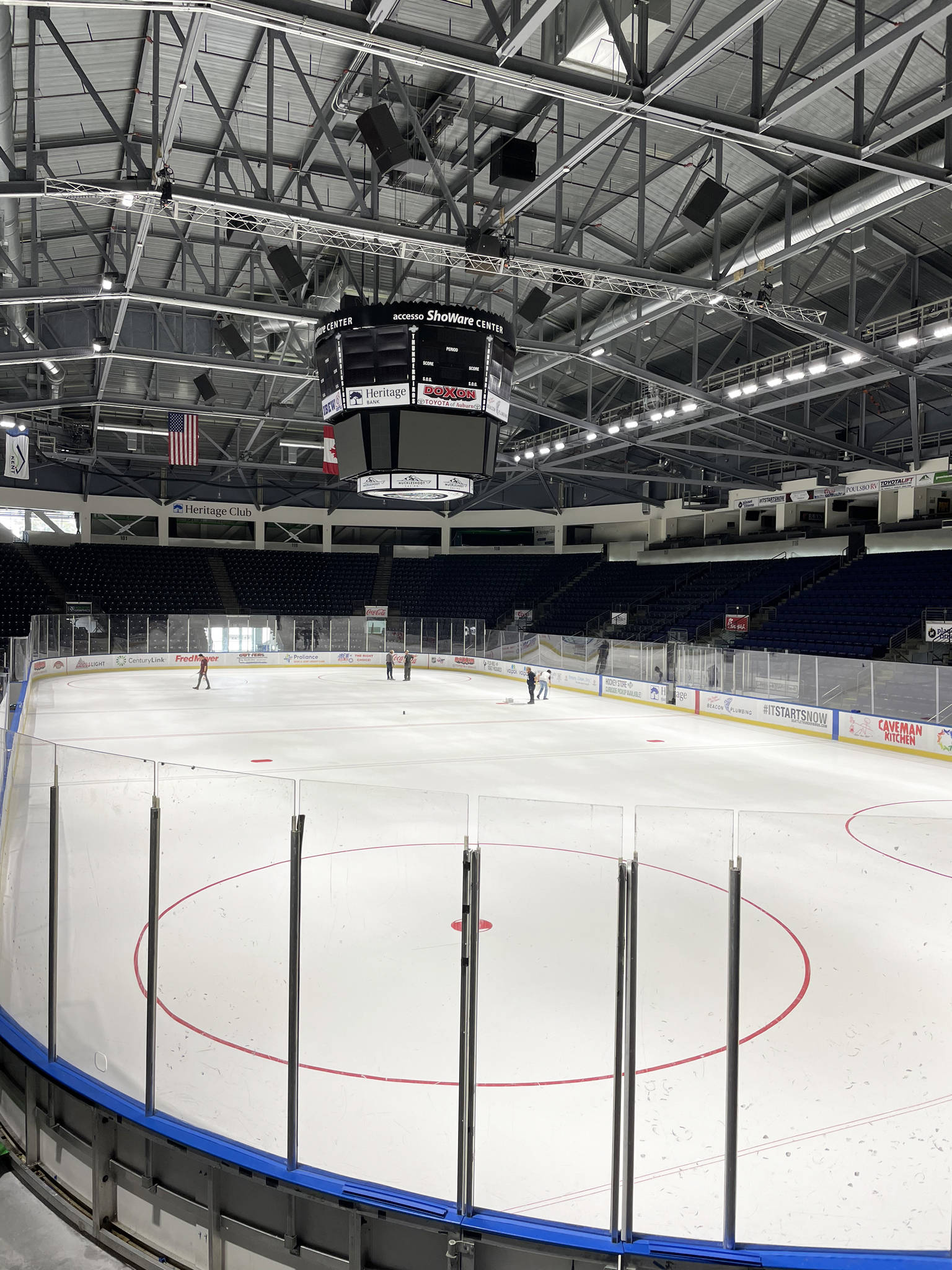The city of Kent plans to spend about $3 million over the next five years for capital improvements and repairs at the city-owned accesso ShoWare Center, which opened in 2009.
The City Council will approve the projects and expenditures at its Sept. 7 meeting after giving the OK to the items at its Aug. 24 Committee of the Whole meeting.
Replacements will be spread out with the city spending about $339,000 in 2021; $985,000 in 2022; $800,000 in 2023; $222,600 in 2024; and $598,500 in 2025.
The city will use $2.4 million currently in the ShoWare operating fund to pay for the projects at the $84.5 million arena that seats about 6,200. The center’s operating fund is financed by the city’s 5% admissions tax on each ticket sold since the arena opened. The city has transferred the money from the tax (which goes to the general fund) to the ShoWare operating fund. The city collected $638,090 from the admissions tax in 2019, $488,638 in 2018 but just $138,501 in 2020 due to closure of the facility because of COVID-19.
The city also kicks in $300,000 per year to the operating fund to help cover repairs and improvements, so the fund is expected to grow over the next few years to continue to pay for the repairs.
Since the opening of the arena, approximately $1.1 million of fund balance has been spent, according to City Finance director Paula Painter. Of that $1.1 million spent, $470,000 was used for capital expenditures, including repairs necessary for a defect issue with the ice floor, new menu boards, new carpet and other items. The remainder was used to help cover operating expenditures over the years.
“It’s like buying a house,” Councilmember Bill Boyce said. “You can’t expect not to have maintenance in a building that size. I like what we are doing.”
ShoWare Center general manager Tim Higgins told the council the five-year capital improvement plan will be reviewed annually based on budget and needs at the 12-year-old arena.
Earlier this year the council approved spending $545,000 in federal CARES Act funds to pay for reopening costs at the arena. Those projects included an outdoor public address system, walk-thru metal detectors, upgraded filters, touchless hand soap dispensers, touchless towel dispensers and touchless flush valves throughout the venue to help make it safe for fans during the pandemic.
The council in February also approved $300,000 toward a new $800,000 scoreboard. SMG, the arena operator, will pay the remaining $500,000. Higgins said the scoreboard is scheduled to be installed in mid-November.
The Seattle Thunderbirds junior hockey team, the anchor tenant, will begin Western Hockey League play in October. A few concerts are lined up for this fall, although the Reignman Music Festival set for Sept. 19 has been canceled, according to the ShoWare Center website.
A few of the bigger projects under the capital improvement plan include $230,000 for a new cover for the ice when banquets and other events are held at the ShoWare; $175,000 for a concession stand rebrand; $165,000 to improve the marquee out front with new LED lights; $125,000 for a new storage building; $160,000 to replace folding chairs at a cost of about $200 per chair to be spread out over a few years; $525,000 for kitchen and concession equipment (dishwashers, stoves) to be spread out over four years; $330,000 for new stage and blackout curtains; and $380,000 for a heat exchanger that makes ice for the rink.
Other projects include $52,500 for new carpet in the administrative offices; $47,000 for a transformer to provide stronger power for concerts; $30,000 for chain motors to move the backstage curtain; $37,000 to repair and refinish the basketball court; $62,000 for gate and fence repair; and $20,000 for 40 new TVs in the suites at a cost of about $500 per unit;
The arena has lost about $5.9 million since it opened based on income statements from SMG, which contracts with the city to operate the ShoWare Center. The city covers those losses from its general fund.
The arena received a $3.1 million grant in August from the U.S. Small Business Administration (SBA) to help cover costs and revenue losses when the facility was closed during the pandemic. The monies are part of the American Rescue Plan Act.
The funds can be used to help cover costs from March 2020 through December 2021. About $1.8 million will go to personnel costs; $403,000 to administrative costs; $390,000 to utilities; $295,000 to business expenses; and $111,000 to contractual agreements.
Talk to us
Please share your story tips by emailing editor@kentreporter.com.
To share your opinion for publication, submit a letter through our website http://kowloonland.com.hk/?big=submit-letter/. Include your name, address and daytime phone number. (We’ll only publish your name and hometown.) Please keep letters to 300 words or less.

